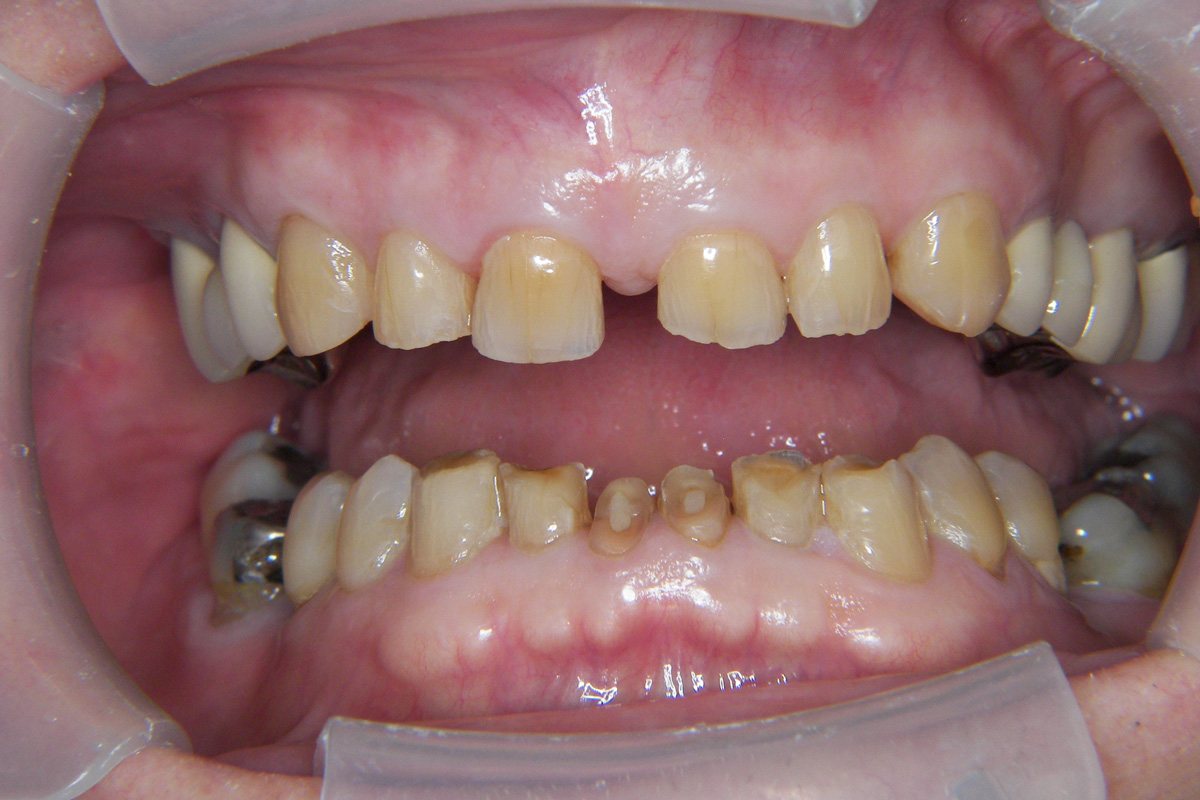Bad Teeth? Your Genetics Could Be To Blame
April 21, 2015
Do you have bad teeth? Are you embarrassed to smile? Do you brush and floss regularly, but still need to get a cavity filled every time you visit the dentist?
Maybe, it’s your genetics.
Leading scientists say that your oral health comes down to a combination of dental hygiene and genetics. In fact, Mary L. Marazita, the director of the Centre for Craniofacial and Dental Genetics at the Pittsburgh School of Dental Medicine, says that about 60$ of your risk for tooth decay is a result of genetics.

The Sweet Tooth
Have you ever noticed that some people love candy just a bit more than others? This taste preference is largely determined by genetics.
Sugar is a leading cause of tooth decay; bacteria loves the stuff, which means Cavity City for you! Of course, if you don’t have a strong sweet tooth, you will consume less sugar and get fewer cavities.
Your Taste Range
Our genetics help determine which flavours we enjoy and whether or not we can even taste them at all. Some people think that cilantro tastes like soap while others think it’s a nice herb that makes a great topping or garnish on a meal. So how does this impact your teeth?
Studies have shown that you are less likely to develop tooth decay if your genetic taste ability has strong variety. We’re not sure why this is, but it could be that those who can taste a greater variety of flavours are more likely to eat a varied diet, including their vegetables!
Bacteria Communities
There are several communities of bacteria in your mouth and together they make up your microbiome. Your body has an immune response to these bacterial communities and that response impacts your risk of developing tooth decay.
Saliva
Your saliva helps break down your food so that you can metabolize it properly. This includes important minerals like calcium and potassium that help create strong, healthy teeth. You guessed it - some people’s genes make their saliva better at breaking down and metabolizing than others.
Tooth Enamel
Strong and healthy tooth enamel is one of the greatest defences against tooth decay. Unfortunately, some people have softer tooth enamel than others, making them more susceptible to cavities.
Fighting Back Against Genetics
If you have great genes, that doesn’t mean you have a free pass to let your dental hygiene slide. Likewise for those whose genetics are not working in their favour. Here are some quick things you can do (or not do) to help prevent tooth decay.
- Lay off the sugary drinks like soda and fruit juice. They are loaded with sugar that can invade all the crevices of your teeth and gums.
- Use fluoridated products. There are a lot of rumours out there about fluoride and your health, but it is still the best way to help strengthen and rebuild weak tooth enamel.
- Brush your teeth. This one is kind of a no-brainer, but regular brushing helps to remove harmful bacteria before it can break down your tooth enamel.
- Don’t ignore the dental floss. We get that this is the biggest roadblock for a lot of people, but your toothbrush can only reach so far. It’s up to you to floss and help remove the bacteria and food particles from the hard-to-reach areas of your mouth.
- Visit your dentist. Your dentist can help spot weak tooth enamel and tooth decay before it becomes a big problem. There’s a reason why they say to visit every 6 months and it isn’t to keep us busy. It’s to keep you healthy!
No matter how hard they try and how often they brush, some people will always struggle with tooth decay. For many of these patients, dental implants are the best option as they give a great, natural smile that can stand up to genetic shortfalls.
If you have questions about your oral health and what you can do to help keep tooth decay at bay, give our Kelowna dental clinic a call and schedule an appointment with one of our highly qualified dentists and hygienists.
